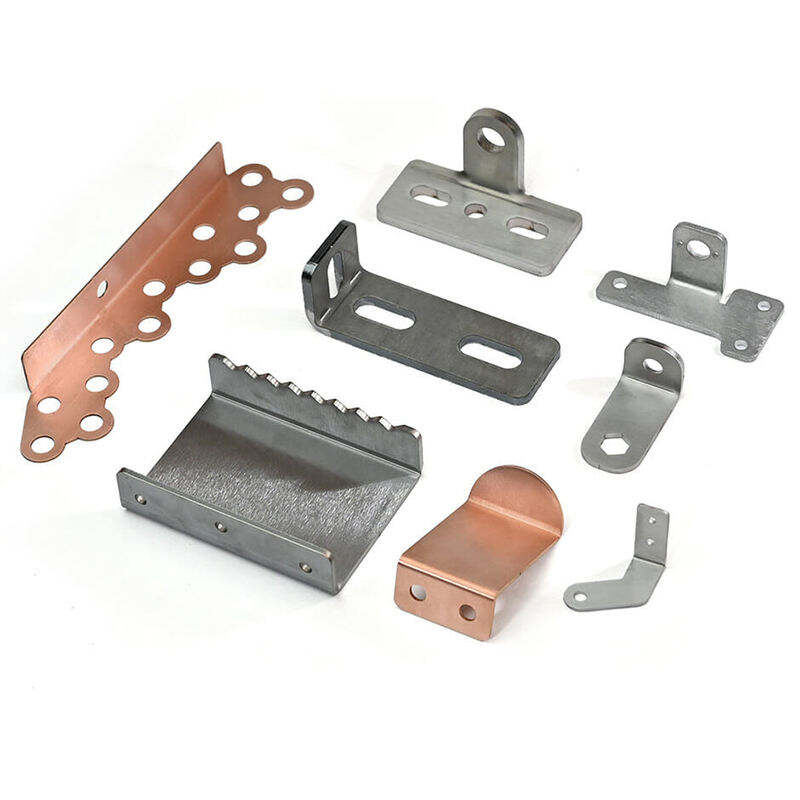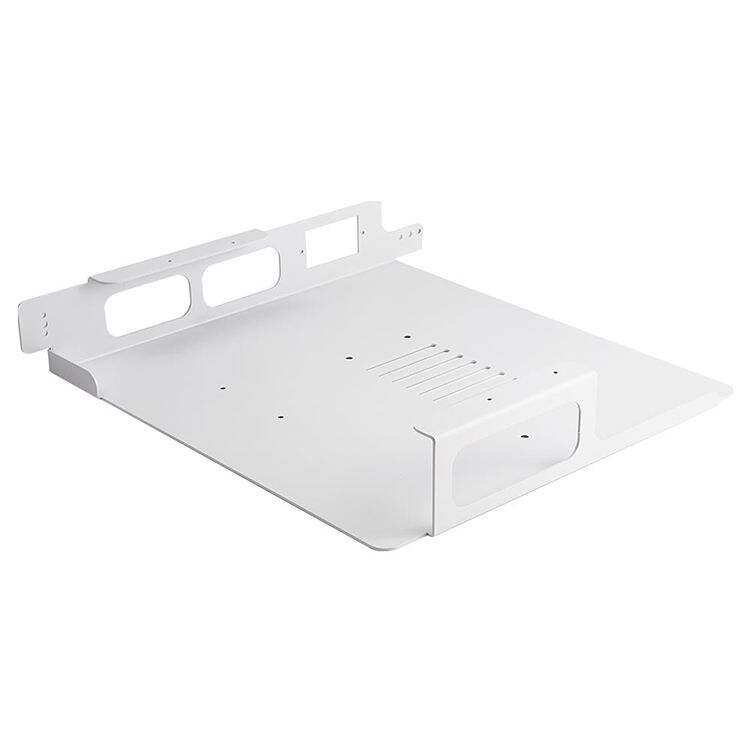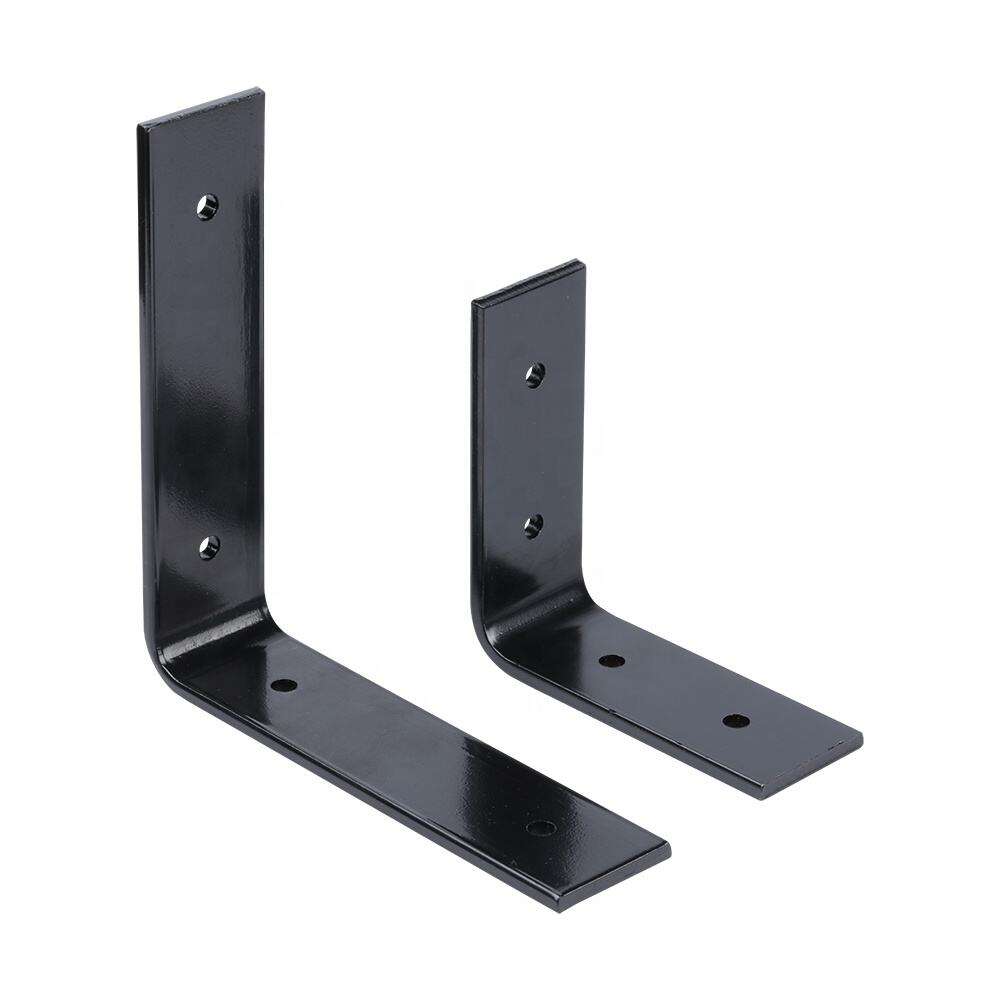Jan 09,2025
Freziranje CNC, skraćenica za Computer Numerical Control freziranje, je probojna proizvodnička metoda u kojoj računalo upravlja strojevima za izradu dijelova s visokom preciznošću. Ova tehnologija pretvara digitalne dizajne u fizičke proizvode koristeći računalne sustave za automatizaciju i upravljanje radom strojeva. Glavna prednost je mogućnost stvaranja detaljnih i točnih dijelova, što simbolizira savršeno sjedinenje softvera i hardvera.
Proces CNC obrade obično uključuje nekoliko ključnih koraka, počevši od stvaranja dizajna pomoću CAD (računalno potpomognutog dizajna) softvera. Kada je dizajn finaliziran, koristi se CAM (računalno potpomognuta proizvodnja) softver za odabir odgovarajućih alata i definiranje procesa obrade. Operacija slijedi s koordinacijom definiranih putanja alata i pokreta, osiguravajući precizno uklanjanje materijala kako bi se stvorila željena komponenta. Na kraju, provode se rigorozne provjere kvalitete kako bi se osiguralo da dijelovi ispunjavaju određene tolerancije.
Osnovna funkcionalnost CNC obrade temelji se na korištenju CAD/CAM softvera. Ovaj softver pretvara dizajne u G-kod, programski jezik koji određuje specifične pokrete CNC strojeva. Kada su programirani, CNC strojevi rade automatski, izvršavajući zadatke s minimalnom ljudskom intervencijom. Proces uključuje operacije obrade kao što su frezanje, okretanje i bušenje, koje se izvode s neusporedivom preciznošću i ponovljivošću, čineći CNC obradu osnovom u proizvodnji preciznih komponenti u raznim industrijama.
CNC obrada igra ključnu ulogu u automobilskoj industriji, prvenstveno zbog potrebe za preciznošću u proizvodnji automobila. Preciznost izravno utječe na performanse i sigurnost vozila, što su utvrdile razne studije, uključujući one od SAE International. Organizacija ističe da čak i minuscule varijacije, male kao 0,1 mm, u automobilskim dijelovima mogu značajno utjecati na učinkovitost i sigurnost vozila. Ova potreba za pomnom točnošću je razlog zašto je CNC obrada neophodna u proizvodnji automobilske opreme.
CNC obrada se široko koristi u proizvodnji raznih složenih automobilski dijelova. Blokovi motora, kućišta prijenosnika i prilagođeni nosači su među ključnim komponentama proizvedenim ovom tehnologijom. Preciznost koju nude CNC strojevi omogućuje proizvodnju ovih dijelova prema točnim specifikacijama, osiguravajući optimalne performanse. Na primjer, složenost blokova motora zahtijeva preciznu obradu kako bi se osiguralo da mogu izdržati pritiske i temperature rada, a da pritom zadrže integritet. U proizvodnji ovih komponenti, CNC obrada osigurava uniformnost i kvalitetu, ističući svoju vitalnu ulogu u automobilskoj inženjeringu.
CNC obrada značajno poboljšava učinkovitost i brzinu proizvodnje unutar automobilske industrije. U usporedbi s tradicionalnim metodama proizvodnje, CNC tehnologija ubrzava proizvodne procese korištenjem preciznosti kontrolirane računalom za brzo izvršavanje zadataka. Industrijske studije su pokazale da CNC obrada ne samo da smanjuje vrijeme proizvodnje, već i povećava propusnost za otprilike 15-20%. Ova učinkovitost je ključna za zadovoljavanje ciklusa visoke potražnje u automobilskoj proizvodnji, omogućujući tvrtkama da ostanu konkurentne na brzo mijenjajućem tržištu.
Osim toga, CNC obrada je poznata po proizvodnji visokokvalitetnih komponenti s minimalnim greškama. Ova tehnologija postiže iznimno visoke tolerancije, drastično smanjujući vjerojatnost nedostataka i nesukladnosti u automobilskim dijelovima. Sposobnost CNC strojeva da precizno kontroliraju više osi istovremeno prevodi se u komponente koje ispunjavaju stroge automobilske standarde. Istraživanja pokazuju da implementacija CNC obrade može smanjiti marginalne greške do 80%, osiguravajući da svaki komad zadovoljava rigorozne kvalitete potrebne za sigurnost i performanse vozila. Kao rezultat toga, proizvođači se mogu osloniti na CNC obradu za isporuku pouzdanih i izdržljivih automobilskih dijelova, čime se poboljšava ukupna kvaliteta proizvoda i zadovoljstvo kupaca.
Višeačkovno CNC obrada revolucionira stvaranje automobilske komponente omogućujući brzo i učinkovito proizvodnju složenih oblika. Za razliku od tradicionalne 3-osa obrade, koja ograničava kretanje na X, Y i Z osi, višeačkove mašine dodaju dodatne dimenzije rotacije. Na primjer, 4-osa i 5-osa mašine uvode rotacijsko kretanje, što omogućuje alatu pristup teško dostupnim područjima bez ručnog premještanja radnog komada. Sposobnost manevriranja oko radnog komada poboljšava preciznost i smanjuje vrijeme proizvodnje, čineći ga idealnim izborom za izradu složenih automobilski dijelova s visokom točnošću i dosljednošću.
Napredne CNC tehnologije kao što su adaptivno obradno i automatske izmjene alata značajno pojednostavljuju proces proizvodnje automobila. Adaptivno obradno omogućuje prilagodbe u stvarnom vremenu tijekom obradnog procesa, optimizirajući putanje alata i minimizirajući otpad dinamičkim odgovorom na varijacije u tvrdoći ili obliku materijala. Automatske izmjene alata dodatno poboljšavaju učinkovitost omogućujući nesmetane prijelaze između različitih obradnih zadataka bez ljudske intervencije. Ove inovacije doprinose smanjenju vremena postavljanja i nižim troškovima rada, dok održavaju najviše standarde kvalitete. Ova poboljšanja ne samo da povećavaju preciznost proizvedenih komponenti, već i poboljšavaju ukupnu brzinu proizvodnje, čime se učinkovitije zadovoljavaju visoke zahtjeve automobilske industrije.
Naše poboljšane usluge izrade limenih dijelova s prilagodbom fokusiraju se na pružanje visoke prilagodbe i preciznosti za automobilske primjene. Korištenjem najsuvremenijih tehnologija laserskog rezanja i CNC savijanja, osiguravamo najviši stupanj točnosti i strukturne cjelovitosti u svim projektima. To osigurava da se čak i složeni i detaljni dijelovi proizvode s dosljednošću i preciznošću.

Ispunjavanje OEM standarda je ključno u proizvodnji limenih dijelova za automobile kako bi se osigurala kvaliteta i performanse. Naše profesionalne usluge proizvodnje limenih dijelova za OEM slijede stroge procese osiguranja kvalitete kako bi se proizveli dijelovi koji ispunjavaju točne specifikacije proizvođača automobila, osiguravajući kako strukturnu izvedbu tako i estetsku privlačnost.

Za automobilske primjene koje zahtijevaju robusnu i pouzdanu podršku, naši prilagođeni savijeni i zavareni L-nosači od limenog metala nude neusporedivu svestranost i snagu. Ovi nosači su precizno izrađeni i zavareni kako bi pružili pouzdanu podršku i prilagođeni su za razne primjene unutar automobilske konstrukcije.

Integracija umjetne inteligencije (AI) i automatizacije u CNC obradi brzo transformira automobilsku industriju. AI poboljšava sposobnosti CNC strojeva poboljšavajući učinkovitost i optimizirajući procese donošenja odluka. Analizom velikih količina podataka, AI sustavi mogu predvidjeti trošenje dijelova strojeva, planirati održavanje, pa čak i predložiti optimalne putanje rezanja kako bi se smanjio otpad materijala. Osim toga, automatizacija u CNC obradi minimizira ljudsku intervenciju, omogućujući dosljednije i preciznije proizvodne operacije. Ova poboljšanja doprinose učinkovitijem proizvodnom procesu, smanjujući vrijeme i troškove povezane s proizvodnjom automobilski dijelova.
Održivost u CNC obradi je još jedan ključni trend koji dobiva zamah unutar automobilske industrije. Proizvođači sve više usvajaju održive prakse kako bi smanjili svoj ekološki otisak. Napori uključuju smanjenje otpada i potrošnje energije tijekom CNC obradnog procesa. Inovativne tehnike poput zatvorenih sustava u CNC strojevima recikliraju otpadne materijale, pretvarajući ono što je nekada bilo otpad u upotrebljive materijale. Nadalje, napredak u tehnologijama CNC-a koje štede energiju doprinosi smanjenju potrošnje, čineći proizvodni proces ekološki prihvatljivijim. Fokusiranjem na održive prakse, automobilska industrija ne samo da ispunjava regulatorne zahtjeve, već također igra značajnu ulogu u promicanju ekološke odgovornosti.
Kako se automobilska industrija razvija, CNC obrada je spremna igrati ključnu ulogu u oblikovanju njene budućnosti. Integracija najmodernijih tehnologija poput umjetne inteligencije (AI) i automatizacije će revolucionirati procese CNC obrade, potičući neviđene razine učinkovitosti i preciznosti. AI pomaže u optimizaciji rada strojeva, smanjenju zastoja i poboljšanju donošenja odluka predviđanjem potreba za održavanjem i poboljšanjem upravljanja radnim procesima.
Održivost je još jedan trend koji dobiva na zamahu u CNC obradi za automobilske primjene. Fokus je na smanjenju otpada i potrošnje energije, čime se ispunjavaju ekološki standardi bez ugrožavanja proizvodne učinkovitosti. Usvajanje održivih praksi, poput reciklabilnih materijala i energetski učinkovitih strojeva, ne samo da podržava ekološke ciljeve, već također poboljšava ekonomsku održivost proizvodnih procesa. Zajedno, ove inovacije u AI, automatizaciji i održivosti definirat će sljedeću eru CNC obrade, osiguravajući da ostane bitna osnovna komponenta u automobilskoj proizvodnji.